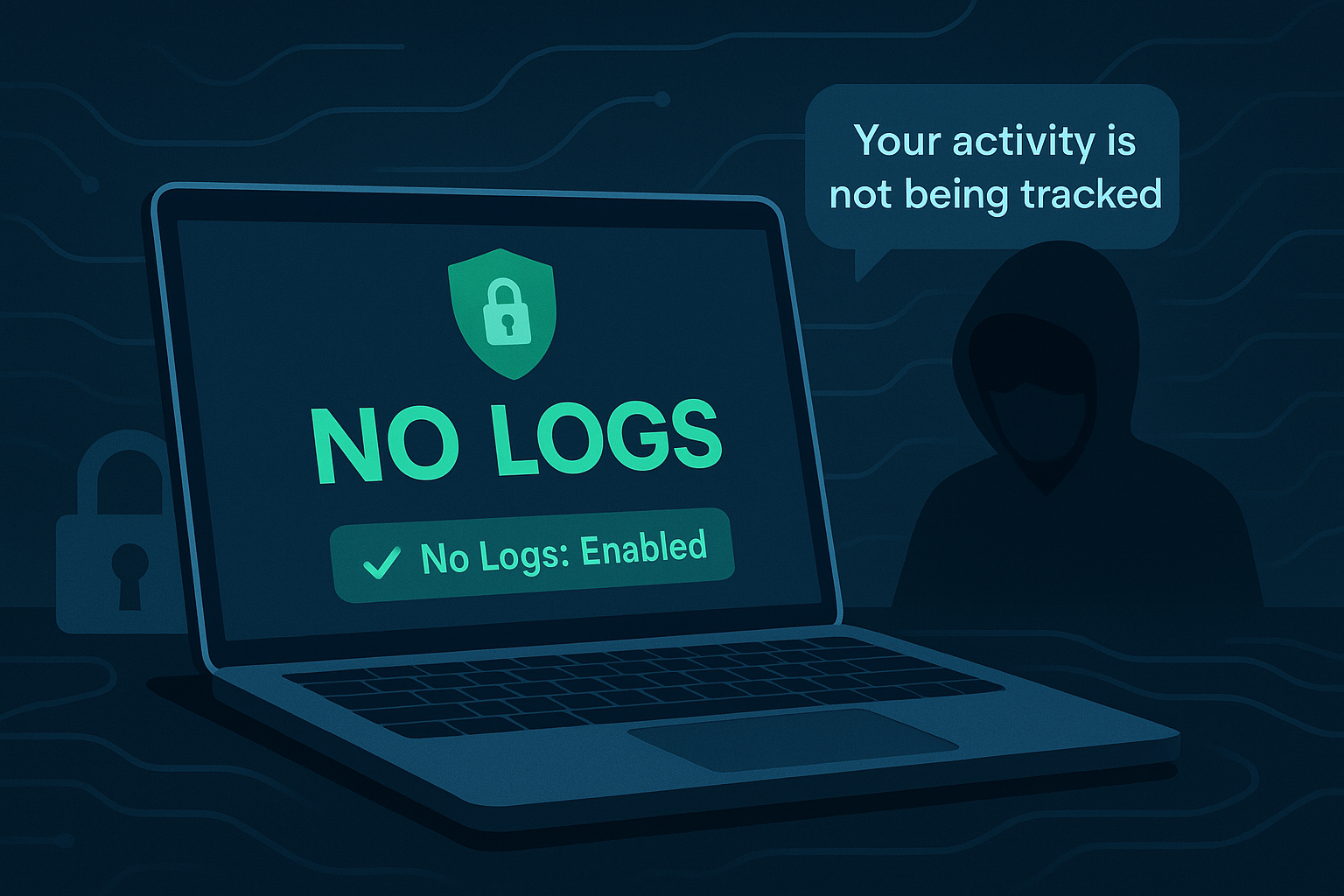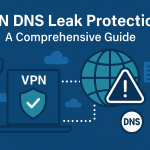A no-logs policy refers to a VPN provider’s commitment to not collecting or storing any user activity data. This means that the provider does not keep records of browsing history, connection timestamps, IP addresses, or bandwidth usage. The primary goal of a no-logs policy is to ensure that even if a government, law enforcement agency, or third party requests data, there is nothing available to share.
This policy is crucial for maintaining digital privacy. In an era where online surveillance and data tracking are increasingly common, users seek VPN services that guarantee their anonymity and security. However, not all VPN providers define or implement no-logs policies in the same way, making it important to understand the nuances of how different companies handle user data.
Why Does a No-Logs Policy Matter?
Privacy is one of the core reasons people use VPNs, and a no-logs policy ensures that users remain anonymous. Without logs, VPN providers cannot track user activities, meaning there is no record of visited websites, downloaded files, or communication history. This is crucial in regions with high levels of internet censorship or surveillance, where individuals rely on VPNs to protect their freedom of expression.
Another key benefit is security. Even if a VPN provider experiences a data breach, there will be no stored logs to expose user information. In contrast, VPN services that retain logs put users at risk of potential leaks or misuse of their data. Additionally, users accessing sensitive information, such as whistleblowers, journalists, or activists, need strong assurances that their online activities cannot be traced back to them.
Beyond individual privacy, a no-logs policy is also relevant for businesses that use VPNs to protect confidential communications. Companies handling proprietary information or customer data need to ensure that no third party—including the VPN provider—has access to their traffic logs.
Types of VPN Logs
Not all VPN services define “no-logs” the same way. There are three main types of logs that VPN providers may or may not store:
Activity logs include details of users’ online behavior, such as visited websites, downloaded files, and online transactions. These logs pose the highest risk to privacy, as they can be used to track and profile individuals. Any VPN that retains activity logs cannot be considered truly private.
Connection logs track metadata such as connection times, IP addresses, and session duration. While less invasive than activity logs, connection logs can still be used to link users to specific online actions, especially if authorities correlate this information with other data sources.
Diagnostic logs contain non-identifying information used to improve service quality, such as server load statistics or app crash reports. While generally harmless, some VPN providers collect more than necessary under the guise of diagnostic data, so users should still scrutinize these policies.
Challenges in Enforcing a No-Logs Policy
Although many VPN providers claim to follow a no-logs policy, enforcing it requires strict operational security measures. The infrastructure of a VPN must be designed in such a way that logging is not technically possible. Some providers take additional steps, such as using RAM-only servers that erase all data upon reboot, preventing any possibility of data retention.
Another challenge comes from legal jurisdictions. VPN providers operating in countries with strict data retention laws may be required to store certain types of information. This is why choosing a VPN based in privacy-friendly regions, such as Panama, Switzerland, or the British Virgin Islands, is often recommended. Countries that are part of the Five Eyes, Nine Eyes, and Fourteen Eyes intelligence-sharing alliances may pose higher risks, as providers operating within these jurisdictions could be compelled to hand over user data.
Additionally, some VPN providers may claim to be no-logs but still store anonymized or aggregated user data. While this may not be directly traceable to individual users, it still raises concerns about the true level of anonymity offered.
How to Verify a VPN’s No-Logs Claims
With increasing concerns about online privacy, several VPN providers have undergone independent security audits to verify their no-logs claims. Audits conducted by reputable cybersecurity firms help confirm that a provider does not retain user data. These audits should be publicly available and conducted by established third-party firms with expertise in privacy and security.
Another way to assess a provider’s no-logs policy is by reviewing transparency reports. These reports detail government data requests and how they were handled. A reputable no-logs VPN should show a history of rejecting such requests due to the absence of stored data.
Users can also check past legal cases involving VPN services. Some providers have demonstrated their no-logs commitment by having nothing to provide when authorities have demanded user data. A notable example is when some VPN providers have faced police investigations but were unable to hand over user logs because they simply did not exist.
No-Logs Policy vs. Other Privacy Features
While a no-logs policy is an essential privacy feature, it should be combined with other security measures for maximum protection. VPNs that support strong encryption, such as AES-256, ensure that even intercepted traffic remains unreadable. Additional features like a kill switch prevent accidental data leaks if the VPN connection drops. Multi-hop VPNs, which route traffic through multiple servers, provide an extra layer of anonymity, further protecting users from potential tracking.
Other important features include split tunneling, which allows users to route specific traffic through the VPN while keeping other traffic on a direct connection, and obfuscation techniques that disguise VPN traffic to bypass censorship. These features enhance a no-logs policy by making it even harder for third parties to monitor online activity.
Choosing a VPN with a True No-Logs Policy
To select a VPN that genuinely upholds a no-logs policy, users should research independent audits, transparency reports, and jurisdictional implications. Reading user reviews, expert analyses, and official privacy policies helps identify whether a provider’s claims are backed by actual evidence. Additionally, opting for a VPN that has undergone multiple third-party audits over time demonstrates consistency in maintaining privacy standards.
It is also advisable to choose VPNs that operate RAM-only servers, as these prevent persistent data storage. A VPN that regularly upgrades its security infrastructure and remains transparent about operational practices is more trustworthy than one that makes broad marketing claims without proof.
Conclusion
A no-logs policy is the foundation of any privacy-focused VPN service. It ensures that user activity remains private, protects against data breaches, and prevents third parties from accessing sensitive information. However, users must verify these claims through audits, transparency reports, and independent reviews. By choosing a VPN that truly adheres to a no-logs policy and combines it with strong security measures, users can maximize their online privacy and security.
Ultimately, a no-logs policy is only as strong as the infrastructure and operational integrity behind it. Understanding how VPNs handle logs and taking the time to assess their claims allows users to make informed decisions about their digital security.



![Oregon VPN Access – Best Local IP Picks [year] 7 Best VPN for Oregon [year]: Fast Servers for Oregon IP](https://vpntrends.org/wp-content/uploads/2025/02/Best_VPN_for_Oregon-150x150.jpg)
![New Jersey VPN Access – Get NJ IP Fast [year] 7 Best VPN for New Jersey [year]: Fast Servers for NJ IP](https://vpntrends.org/wp-content/uploads/2025/02/Best_VPN_for_New_Jersey-150x150.jpg)
![Bumble VPN Access – Private, Safe Dating Picks [year] 7 Best VPN for Bumble [year]: Secure Connection for Dating](https://vpntrends.org/wp-content/uploads/2025/02/Best_VPN_for_Bumble-150x150.jpg)
![Michigan VPN Access – Best Fast Local IP [year] 7 Best VPN for Michigan [year]: Fast Servers for Michigan IP](https://vpntrends.org/wp-content/uploads/2025/02/Best_VPN_for_Michigan-150x150.jpg)
![Rhode Island VPN Access – Best IP Picks [year] 7 Best VPN for Rhode Island [year]: Fast Servers for Rhode Island IP](https://vpntrends.org/wp-content/uploads/2025/02/Best_VPN_for_Rhode_Island-150x150.jpg)
![Charlotte VPN Access – Best Picks for Local IP [year] 7 Best VPN for Charlotte [year]: Fast Servers for Charlotte IP](https://vpntrends.org/wp-content/uploads/2025/02/Best_VPN_for_Charlotte-150x150.jpg)
![Tinder VPN Access – Secure & Private Dating [year] 7 Best VPN for Tinder [year]: Secure Access and Privacy](https://vpntrends.org/wp-content/uploads/2025/02/Best_VPN_for_Tinder-150x150.jpg)

